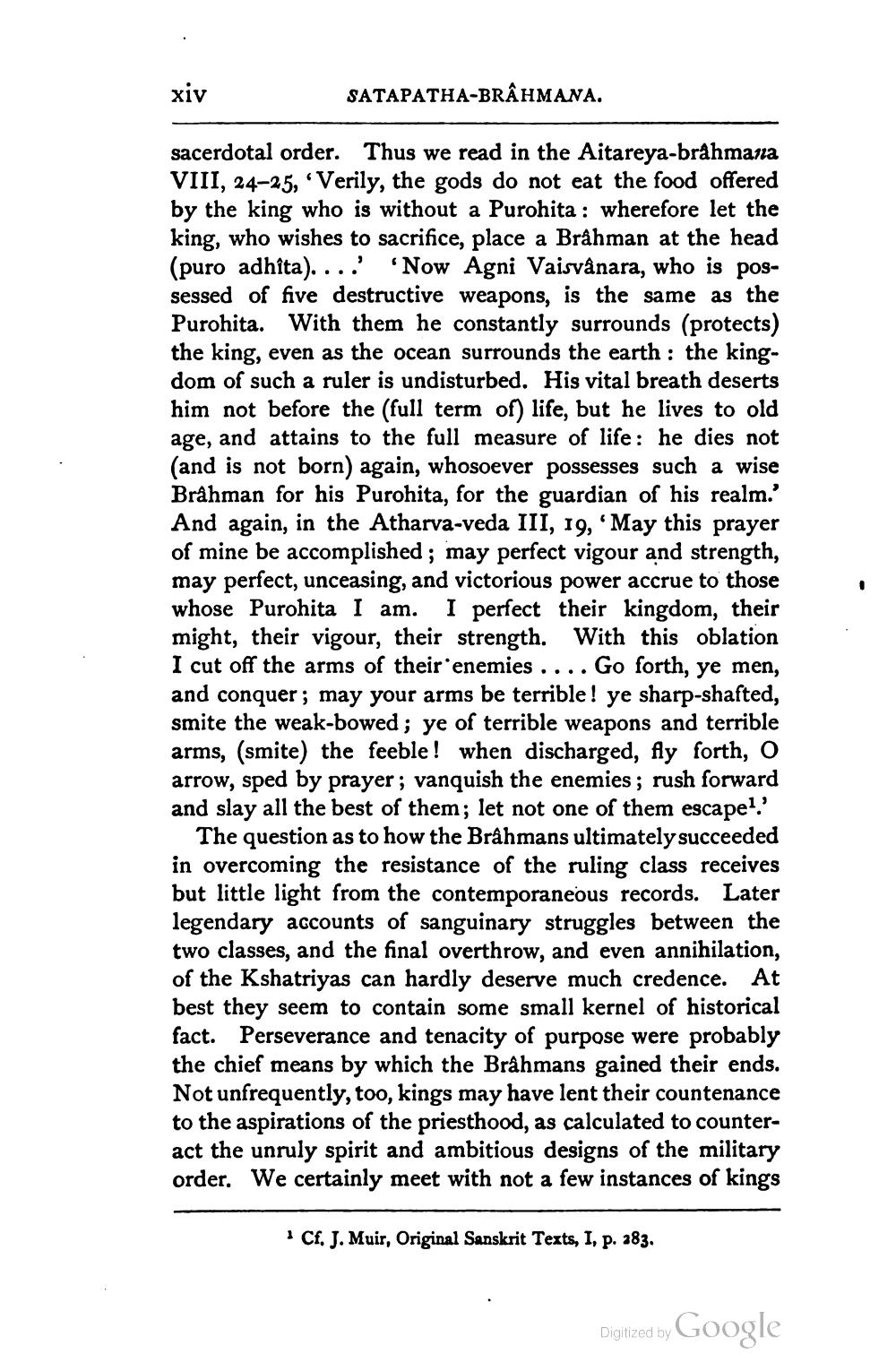________________
SATAPATHA-BRÂHMANA.
sacerdotal order. Thus we read in the Aitareya-brahmana VIII, 24-25, Verily, the gods do not eat the food offered by the king who is without a Purohita : wherefore let the king, who wishes to sacrifice, place a Brâhman at the head (puro adhita). ... 'Now Agni Vaisvanara, who is possessed of five destructive weapons, is the same as the Purohita. With them he constantly surrounds (protects) the king, even as the ocean surrounds the earth : the kingdom of such a ruler is undisturbed. His vital breath deserts him not before the (full term of) life, but he lives to old age, and attains to the full measure of life: he dies not (and is not born) again, whosoever possesses such a wise Brâhman for his Purohita, for the guardian of his realm.' And again, in the Atharva-veda III, 19, 'May this prayer of mine be accomplished; may perfect vigour and strength, may perfect, unceasing, and victorious power accrue to those whose Purohita I am. I perfect their kingdom, their might, their vigour, their strength. With this oblation I cut off the arms of their enemies .... Go forth, ye men, and conquer; may your arms be terrible! ye sharp-shafted, smite the weak-bowed; ye of terrible weapons and terrible arms, (smite) the feeble! when discharged, fly forth, O arrow, sped by prayer; vanquish the enemies; rush forward and slay all the best of them; let not one of them escape1.'
The question as to how the Brahmans ultimately succeeded in overcoming the resistance of the ruling class receives but little light from the contemporaneous records. Later legendary accounts of sanguinary struggles between the two classes, and the final overthrow, and even annihilation, of the Kshatriyas can hardly deserve much credence. At best they seem to contain some small kernel of historical fact. Perseverance and tenacity of purpose were probably the chief means by which the Brâhmans gained their ends. Not unfrequently, too, kings may have lent their countenance to the aspirations of the priesthood, as calculated to counteract the unruly spirit and ambitious designs of the military order. We certainly meet with not a few instances of kings
* Cf. J. Muir, Original Sanskrit Texts, I, p. 283.
Digitized by Google




